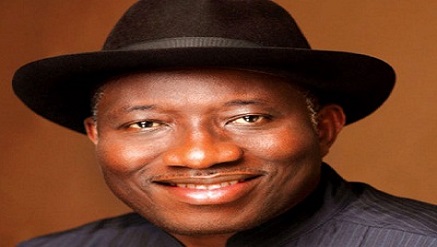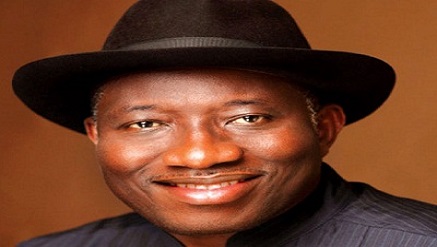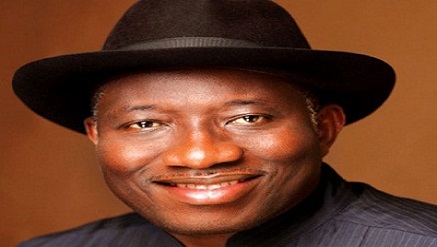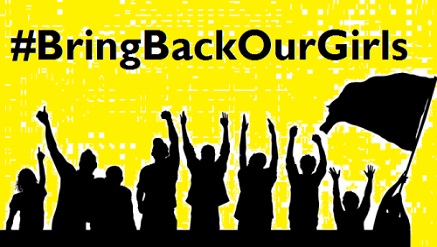News
President Jonathan’s Performance Rating Down By 10 Points in December
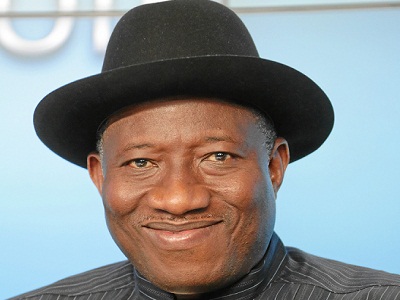
Monthly governance poll results released by NOIPolls Limited, on Tuesday, for the month of December 2013, has revealed that 4 in 10 Nigerians (40%) approve of the President’s performance over the past month.
This latest result represents a 10-point decline in the proportion of Nigerians that approve of the President’s performance from November (50%) and, the lowest approval rating for the President in 2013.
The findings, according to the NOIPolls further revealed that 25% of Nigerians rate the performance of the current administration (the Executive Cabinet; Ministers and State Governors) as good; representing a 5-Point decline from the November (30%) rating. In addition, the poll result revealed a slight improvement in the situation of power supply as the proportion of Nigerians that experienced some improvement increased by 8-points from November (26%) to December (34%) 2013. These were the key findings from the Governance Snap Poll conducted in week of December 16, 2013.
The results presented are the twelfth in the monthly series of governance polls and concluding poll for 2013 conducted by NOIPolls to gauge the opinions and perceptions of Nigerians regarding three crucial elements – the approval rating of the president, the performance of the current administration, and the situation of power supply in the country.
Respondents to the poll were asked three specific questions. The first was to gauge the perception of Nigerians about the performance of President Goodluck Jonathan over the past 1 month; respondents were asked: Do you approve or disapprove of the performance of President Jonathan in the past 1 month?
The results revealed that 40% of Nigerians approve of the Presidents performance over the past month.
Comparatively, 29% of the adult population respondents disapprove of the President’s performance; while 31% were neutral in rating the President’s performance as they neither approve nor disapprove of his performance.
These figures represent a significant 10-point decline in the President’s approval rating from November (50%), and a 7-point increase in the proportion that disapprove of the President’s performance from November (22%).
Further analyses based on geo-political zones indicate that the South-East zone (58%) had the highest proportion of respondents that approve of the President’s performance.
On the contrary, the North-West (40%), North-East (38%) and South-West (35%) zones had the highest proportion of respondents that disapprove of the President’s performance.
The highest proportion of respondents that were neutral towards the president’s performance were from the South-South and South-West zones (35% each).
Evaluating the President’s rating over the year 2013 reveals that the President obtained the highest approval ratings for his performance in August (57%), followed by October (55%) and February (54%).
On the other hand, the President received the lowest approval ratings in the months of December (40%) and April (42%) 2013.
Furthermore, analyses using quarterly averages reveal that the 3rd quarter of 2013 with an average of 53% was the President’s best quarter in terms of approval ratings; while the 2nd quarter with an average of 43% was the worst quarter in terms of the President’s approval rating. The year round average approval rating in 2013 was 49%.
Trend analysis of the performance of the current administration in 2013, shows a 5-point decline in the proportion of Nigerians that approve of the performance of the current administration from November (30%) to December (25%). Comparable to the President’s approval rating, the current administration also received its highest approval rating in August (35%); while its lowest rating was in April (16%).
News
Nigeria’s Electricity Exports Hit $112m amid Persistent Power Outage

Recent data from the International Trade Centre (ITC) has revealed that Nigeria’s electricity exports have reached a value of $112m.

According to the ITC’s website, Nigeria is currently exporting electricity to two neighbouring African nations: the Republic of Benin and Niger.
As of January 18, 2025, Nigeria’s electricity exports to Benin amounted to $66m, with a potential export value of $82m. However, there remains an unrealised export potential of $16m, according to the Punch.
Similarly, electricity exports to Niger were valued at $46m, with the potential for $51m in exports, leaving an unrealised potential of $4.1m.
“The products with greatest export potential from Nigeria to Benin are electrical energy, Urea, and Bars & rods of iron/steel,” the ITC noted.
It also highlighted that the largest absolute difference between potential and actual exports was in electrical energy, with an additional $4.1m in exports still unrealised.
The ITC further indicated that Nigeria’s exports to Niger include electrical energy, Portland cement, and soups, broths and preparations.
While the export data paints a picture of growth in the sector, concerns remain about the state of electricity supply in Nigeria.
According to the Punch, Chief Princewill Okorie, executive director, Electricity Consumer Protection Advocacy Centre, questioned the country’s priorities.
He said, “Are the electricity companies in those countries they export electricity to serve the consumers the way they serve Nigerian consumers? We cannot be celebrating electricity export when at home in Nigeria we are experiencing blackout and extortion in violation of our consumer protection laws. A good parent first takes care of his home before caring for outsiders.”
He further criticised the export of electricity, questioning whether the money generated was benefiting the Nigerian power sector.
“Is it the wellbeing of Nigerians that is more important or the money generated from export of electricity? If such money is generated, why not inject it into electricity when they are telling us they lack liquidity? What sense does it make for our local industries and economy to be dying because of electricity while export is building other countries’ economies?” Okorie asked.
He added that Nigeria’s economic struggles, including the exodus of professionals and youths, were exacerbated by power shortages, questioning the rationale behind celebrating electricity exports under these conditions.
“It is a shame. Charity begins at home. Let them also explain what the money has been used for when we keep borrowing from the World Bank,” he added.
News
SERAP Petitions Trump, Urges Recovery of Stolen Nigerian Assets, Barring Corrupt Officials from US

Socio-Economic Rights and Accountability Project (SERAP) has called on US President-elect Donald Trump to identify and recover stolen Nigerian assets hidden in the United States.

Donald Trump
In a statement released on Sunday via X, SERAP urged Trump’s administration to ensure the return of these assets to the Nigerian people.
“We’ve urged US President-elect Trump and his incoming administration to identify US-based stolen assets traced to Nigerian public officials and to ensure the return of any such assets to the Nigerian people,” SERAP stated.
The organization also demanded that Nigerian public officials implicated in the theft of these assets be banned from entering the US.
Meanwhile in the letter, Trump was urged to “attach and release to Nigeria some $500 million worth of US-based proceeds of corruption traced to former Nigerian dictator General Sani Abacha.”
SERAP’s request “aligns with the UN Convention Against Corruption, which both the US and Nigeria have ratified.”
The organization emphasized that the US Department of Justice should initiate civil asset forfeiture proceedings to fulfill the US commitment to assisting Nigeria in recovering looted assets.
In the letter, SERAP explained that “these proceeds are separate from the $480 million of Abacha-origin funds that have been forfeited to the US under an August 2014 US federal district court order.”
SERAP urged Trump’s administration to initiate discussions with the Nigerian government to fulfill the objective of returning the stolen assets within an agreed framework and timeline.
The organization also stressed the importance of acknowledging the role of civil society in asset recovery matters.
SERAP noted that the UN Convention Against Corruption requires states to return “corrupt” assets to their countries of origin.
The organization noted it believes that Nigeria has met the requirements for the return of the $500 million in proceeds.
The letter was signed by Professor Alexander W. Sierck, US volunteer counsel, SERAP and Adetokunbo Mumuni, executive director and copied to Stuart Symington, US Ambassador to Nigeria.
News
EXIM Bank of the United States, NEXIM Bank Sign MoU to Strengthen Economic Cooperation

The Export-Import Bank of the United States (EXIM) has signed a memorandum of understanding (MOU) with the Nigerian Export-Import Bank (NEXIM) that will deepen collaboration and trade ties between the United States and Nigeria.

The agreement was signed by Exim President and Chair, Reta Jo Lewis, on behalf of Export Import Bank of United states, while Abba Bello, Managing Director/ Chief Executive of NEXIM signed on behalf of the Nigerian Export-Import Bank.
During the signing ceremony, EXIM President and Chair, Reta Jo Lewis, highlights increased opportunities for U.S. exports to Nigeria in critical minerals, clean energy, aviation and infrastructure.
Also, NEXIM MD/CE, Abba Bello, highlights that the partnership is a significant milestone for Nigeria and the US that will provide increased access to trade financing for Nigerian businesses whilst facilitating smoother and more robust mutually beneficial trade flows between the two countries.
The MOU demonstrates a shared desire to identify and promote trade and economic cooperation between the two countries, especially in sectors like clean energy, critical minerals, aviation, maritime transport, digital connectivity, and infrastructure, amongst others.
“Nigeria is the second largest U.S. export destination in Sub-Saharan Africa, but there is so much opportunity to grow,” said Chair Lewis.
“This MOU with NEXIM sends a strong market signal to Nigeria that EXIM is eager to forge a stronger commercial relationship by supporting U.S. exports in key sectors.”
The MD/CE NEXIM in his own remarks noted that, “This collaboration marks a significant milestone in our efforts to strengthen trade ties between Nigeria and the United States.
We are confident that this partnership will open new avenues for economic growth and development”. The MOU, signed virtually marks a significant milestone for the United States and Nigeria.
The MOU will enhance the competitiveness of companies in both nations and strengthen collaboration by exploring options for utilizing EXIM’s medium- and long-term loan guarantees and/or direct loans to finance U.S. exports to Nigeria.
This MOU contributes directly to EXIM’s Sub-Saharan Africa mandate. Over the past three years, EXIM has approved approximately $4 billion of authorizations in support of U.S. exports to sub-Saharan Africa.
The Export-Import Bank of the United States (EXIM) is the nation’s official export credit agency with the mission of supporting American jobs by facilitating U.S. exports.
To advance American competitiveness and assist U.S. businesses as they compete for global sales, EXIM offers financing including credit insurance, working capital guarantees, loan guarantees, and direct loans.
As an independent federal agency, EXIM contributes to U.S. economic growth by supporting tens of thousands of jobs in exporting businesses and their supply chains across the United States.

 News2 days ago
News2 days agoSERAP Petitions Trump, Urges Recovery of Stolen Nigerian Assets, Barring Corrupt Officials from US

 News2 days ago
News2 days agoNigeria’s Electricity Exports Hit $112m amid Persistent Power Outage

 Telecom2 days ago
Telecom2 days agoSubscribers Reject Tariff Hike, Say FG Cannot Speak for Them

 E-Financial2 days ago
E-Financial2 days agoOver 562m People Own Cryptocurrency Globally

 Telecom2 days ago
Telecom2 days agoMTNN Raises N42.20Bn through Commercial Paper

 General News2 days ago
General News2 days agoNIS Announces Maintenance on Passport Portal

 General News2 days ago
General News2 days agoNITDA, NFIU Collaborate on AML/CFT Data Management System Upgrade

 E-Financial2 days ago
E-Financial2 days agoSEC Sets January 31 Deadline for CMOs Registration Renewals



